Debunking 6 Common Myths and Facts About Multivitamins for Bodybuilders: What You Need to Know
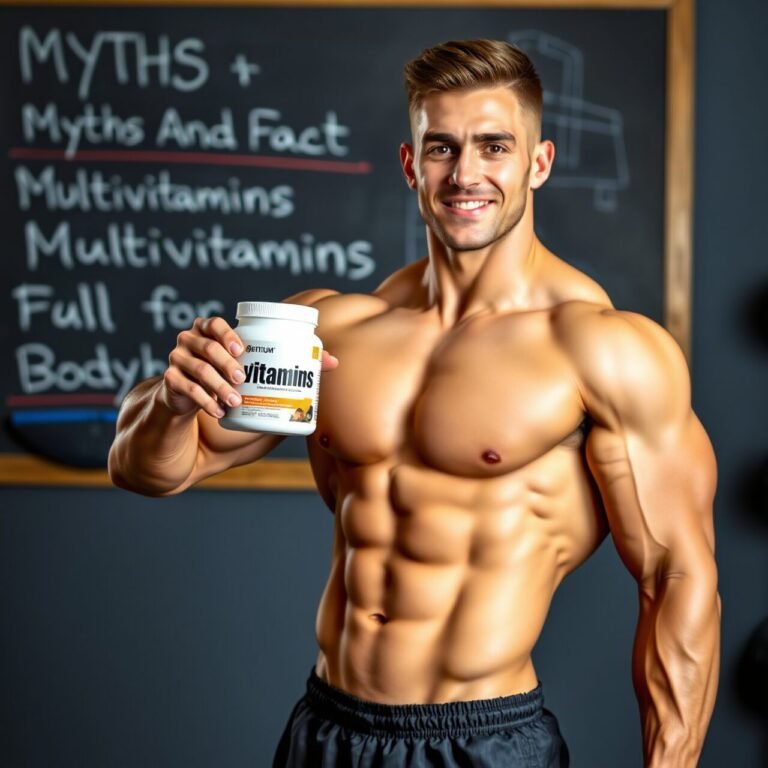
Multivitamin Myths and Facts for Bodybuilders includes many myths and misconceptions. While some still fancy these supplements as enhancers that improve performance, muscle building, muscle mass gainers, or even meal replacements, it is worth knowing the facts. Multivitamins… denial or appreciation is the key; let us shift our focus away from the bad whispers that we have been hearing about them.
In the Myths and Facts for Bodybuilders article, we will discuss common multivitamin myths and give the real scoop-especially for those people who have highly frequent workouts. Now that you know what’s real and what’s not, you can make better choices when it comes to vitamins and know your diet is supporting your fitness goals.
Myth: Multivitamins Can Replace Whole Foods
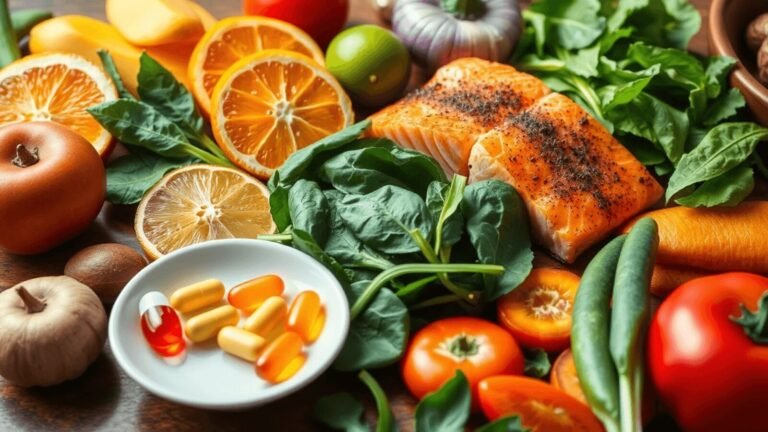
Our first myth of Multivitamin Myths and Facts for Bodybuilders is that whole foods can be replaced by supplements. Imagine biting into a juicy orange. Its tangy flavor offers more than just vitamin C; it’s packed with nutrients that help keep your body healthy. While oranges can’t replace your multivitamin, they do let fiber for digestion and help regulate blood sugar levels. They also contain flavonoids that reduce inflammation and carotenoids that support eye health. All these nutrients work together to help your body absorb what it needs much better than a vitamin pill can.
Whole foods provide a broad array of different nutrients you don’t get from just taking a multivitamin. Think about all the different colors you see among fruits and veggies at the farmer’s market, those colors mean they have a lot of different healthy compounds in them that you can’t find in a pill. For instance, spinach has not only iron but also magnesium for muscles and chlorophyll, which has some anticancer actions. Eating a diverse, whole-foods-based diet helps your body function optimally-so it’s extremely important for anyone pushing that limit by working out hard, such as bodybuilders.
Your food and healthily good nutritious foods are special tools shaping your body, just like an artist shapes a statue. Egg has a high level of nutrition and quality protein, energy vitamins, and choline for brain maintenance. Salmon, on the other hand, is full of omega-3 fatty acids that help your muscles recover and reduce inflammation after grueling workouts. These nutritious foods don’t just give you vitamins-they give your body a whole bunch of good stuff to help you perform better.
Fallacy: More is Better

Steer clear of the idea that more supplements are always better. The temptation for many bodybuilders is to do too much, thinking it will help them build muscle faster or perform better. However, taking too many vitamins and minerals can actually be risky. The body needs a delicate balance of the nutrients and too much of certain kinds of vitamins can be hazardous in nature. Taking too many vitamins like B and C are excreted out of the body. But other vitamins, including A, D, E, and K, can build your body into toxic levels if you have too much.
Rather, it is about taking the correct dosage of vitamins and minerals that your body requires rather than taking a lot. Too much Vitamin D results in illness, weakness, and kidney problems. If you are a bodybuilder, then it will be best if you can consult a nutritionist expert and have blood tests so that you’ll know what your body lacks.
Too much intake of vitamins harms in more ways than one. It creates the appearance of symptoms as if other health issues had taken place. For example, it could be that excess iron causes constipation, pain in the joints, and even liver damage. On the other side, having more Vitamin A than is needed will cause dizziness and will make one lose clear vision. So, a person really needs to be cautious not to overuse vitamins. It isn’t about taking lots of pills, but finding the right balance for your body and goals.
Ideal Time to Take Multivitamins
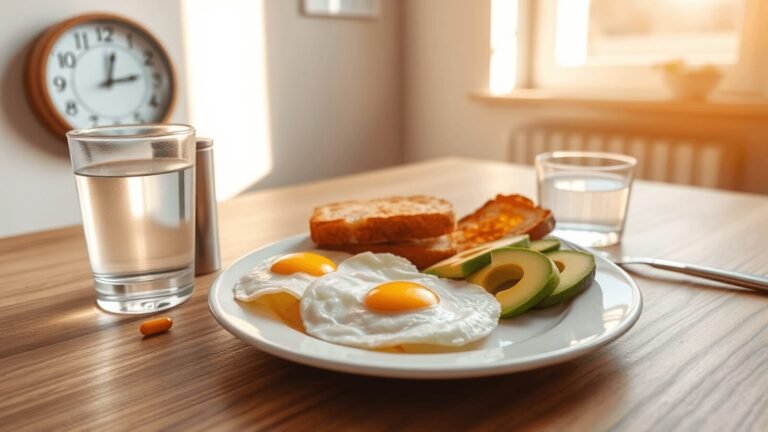
Timing your multivitamin can make a big difference. Taking it on an empty stomach in the morning isn’t as effective as taking it with a meal. Other vitamins, like B-complex and vitamin C, are also best taken with food. A, D, E, and K vitamins are fat-soluble, so they absorb better with fatty foods.
It’s smart to take your multivitamin with meals. When you eat food with supplements, the nutrients work well together. For example, if you consume vitamin C-rich foods like bell peppers or oranges with iron, your body absorbs the iron much better. Additionally, some vitamins absorb better when taken with healthy fats, like avocado or nuts.
Circadian rhythms, or our body’s internal clock, regulate the digestion of nutrients throughout the day. The metabolism and digestion are faster during morning hours; hence, this is a perfect time to take energy-booster vitamins. Later in the day, we should take those supplements that help our body recover, mainly post-workout or during evening hours when we intend to sleep. Stimulating nutrients like magnesium, B6, and B12 should be taken earlier in the day and not before bedtime.
Understanding Bioavailability

When choosing supplements, remember that not all nutrients are equal in how well your body absorbs them. Some lab-created vitamins and minerals may have higher amounts than what the label shows, but your body doesn’t absorb them as effectively as some natural vitamins and minerals.
For example, Vitamin E comes in many forms, but studies show that the type found in nuts like almonds and seeds from sunflowers is better absorbed by the body than the lab-developed version. That’s because these natural foods all have this nutrient combination that encourages your body to absorb those particular vitamins. Supplements created in the lab can’t copy this.
It’s not just about picking the right type, but also about how you take it. Vitamins A, D, E, and K require some healthy fats to really do their thing, so taking a multivitamin with meals that include those healthy fats-like avocados or nuts-can really help one get the most of them. And when you cook, lightly steam your veggies instead of boiling them because of the vitamins C and B, for example. You can do a couple of these things each day to help take in all the good stuff from those vitamins and from food.
Choosing the right vitamins and minerals is very important. For example, when it comes to vitamin D, it’s better to choose vitamin D3 instead of D2 because studies show that D3 raises levels of this essential nutrient more effectively. In the same way, if you have to look for magnesium, select magnesium glycinate rather than magnesium oxide because this substance is absorbed in your body in better ways. This way, by choosing these vitamins and minerals, one guarantees their body’s ability to utilize them correctly.
Specific Needs of Bodybuilders
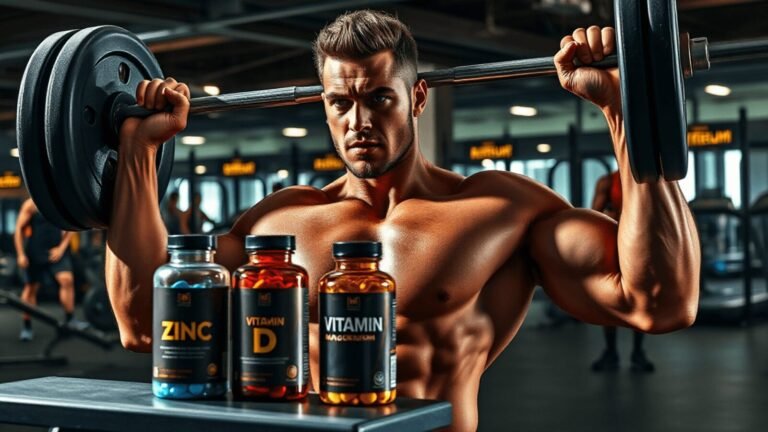
The bodybuilder has to push his body to extreme workouts, flexing muscles and stamina to the limit. The result of such a task naturally leaves him with special nutrition requirements. Just as a high-powered engine constantly needs its fuel, bodybuilders do require huge amounts of certain vitamins and minerals so they are able to keep pace with their extreme workouts. Even for the most disciplined athletes, proper nutrition may bring out the best performance and appropriate recovery.
For the body to function well, it requires appropriate vitamins and minerals. Vitamins like B-complex and vitamin C help transform food into energy and reinforce the immune system. On the other hand, magnesium and other mineral supplements help relax and soothe muscles after exercise.
Choosing the right kind of multivitamin for one’s bodybuilding needs is pretty important. If you’re looking to build muscle, then a multivitamin high in zinc and vitamin D will help optimize testosterone levels for muscle growth. If you are on a diet restricting calories, then ensure that your multivitamin contains needed iron to reduce fatigue and increase energy levels. Here is your comprehensive multivitamin plan, which will depend on your goals and your body characteristics; thus, you will reach your personal potential.
Bodybuilders can make an informed choice regarding supplements by understanding their nutritional requirements during arduous physical exercises. You can take any multivitamin differently, but the one that matches your goals will help you lift heavier weights in no time and get through your workout with ease.
The Role of a Balanced Diet
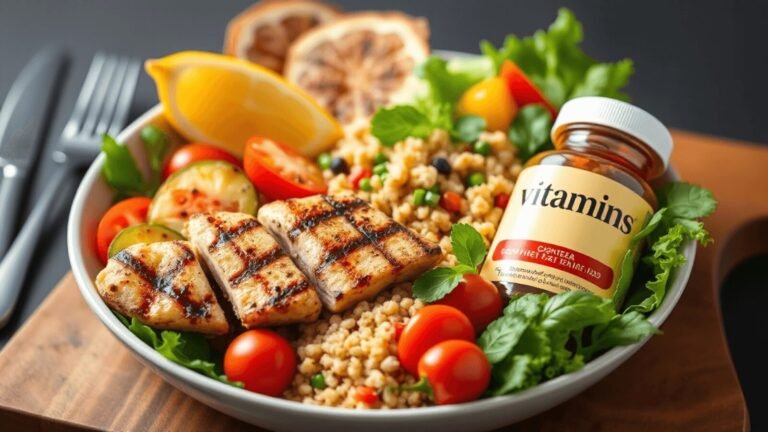
A bodybuilder’s diet is one providing all the nutrients required for muscle growth, energy, and overall health. A plate of chicken-so juicy-and nutty quinoa, a perfect mix of protein and carbohydrates. Proteins fix muscles after workout, while carbohydrates refill the energy stores of the body.
Planning a proper diet is not a question of selecting one item but rather like combining different foods and adding to it some judiciously chosen supplements. Imagine: Your day started with oatmeal, brimming with berries and nuts; it was delicious and got you through most of the day, granting some great fuels to your heart. If you want, you can also add fortified foods or supplements to make sure you obtain all of the nutritional needs, for example, vitamin D3 during winter when the sun is not sufficient and magnesium citrate during stressful conditions.
Whole foods are crucial for bodybuilders because they provide much more than just vitamins. It’s not just about calorie intake; you should also focus on selecting nutrient-dense foods. By combining traditional whole foods with targeted supplements, bodybuilders can create the right balance for building lasting energy and strength. This approach keeps the nutritional value of food intact, drawing on both the diets of our ancestors and modern science.
Myths About Performance Enhancement
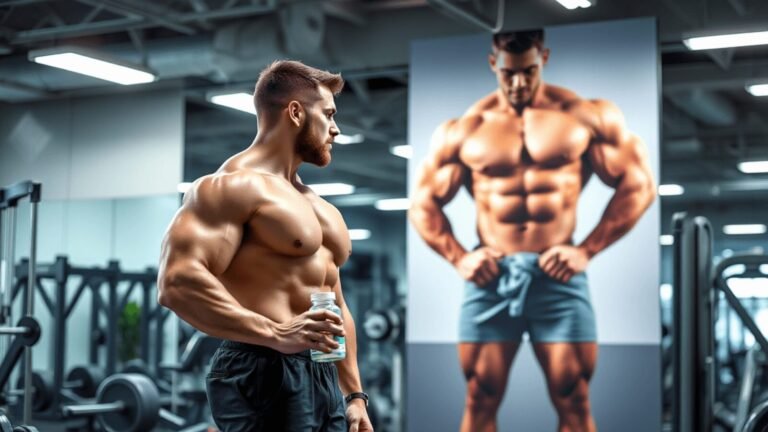
Many people fall for the idea that Multivitamin Myths and Facts for Bodybuilders mean these pills are magical performance enhancers or cure-alls for health issues. It’s easy to believe that simply taking a pill will make you super strong and healthy, but that’s not the truth.
Remember, multivitamins are not magic workers but a way to ensure that your body obtains all the necessary nutrients.Suppose you want to see some real changes within yourself- health and performance-wise; then you need to be on a regular exercise schedule, eat good healthy food, and commit to your goals.
Often, advertisements for multivitamin supplements sound like one-of-a-kind products that would make a person super healthy, even carrying pictures of fit and top athletes. But these ads could be deceitful. Take the example of Michael Phelps: he didn’t take supplements to be a great swimmer, he just worked out and ate well. One has to see beyond the nice marketing towards what science has to say about these supplements.
Setting realistic bodybuilding goals is important. Without shortcuts of multivitamins, one should exercise regularly, and with proper nutrition, an adequate amount of natural nutrients should be taken. Remember that fitness takes time and effort. It pays to be patient and determined enough to have lasting strength, not just temporary results of instantaneous desires.
Multivitamins Ultimate Guide
Multivitamins
Conclusion: Paving the Path to Smart Supplementation
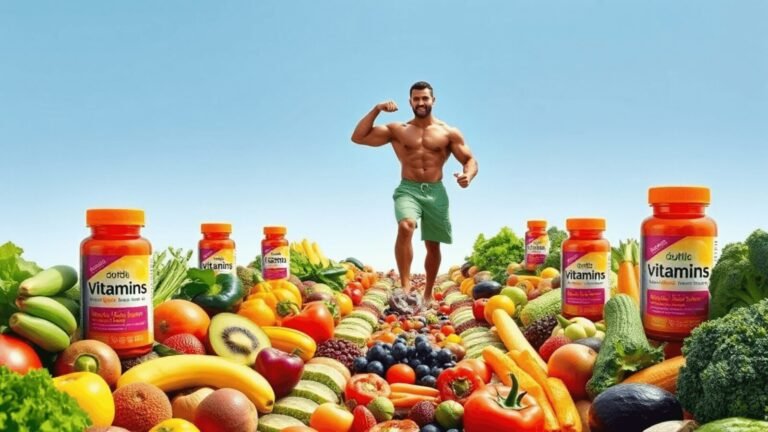
These vitamins can help with bodybuilding, and knowing how to use them can save mistakes and boost your nutrition. However, although multivitamins can supplement certain nutrients which may not be received from the diet, they cannot substitute for healthy nutrition. Consuming a variety of whole foods gives you a far better range of nutrients interacting together for better absorption and health in general.
When it comes to staying strong and healthy, Multivitamin Myths and Facts for Bodybuilders show that the real key lies in proper eating and the right supplements. Avoid relying on quick fixes or performance boosters. Instead, focus on a balanced diet to maintain your strength and help your body recover.
Multivitamin Myths and Facts for Bodybuilders FAQs
Q: Could multivitamins substitute for whole foods?
A: Whole foods provide nutrients that multivitamins can’t, which are very important to a bodybuilder.
Q: Is taking more multivitamin better?
A: No, too much of vitamins, especially A, D, E, and K, are toxic. Take the right dosage.
Q: When should a bodybuilder take multivitamins?
A: These multivitamins should be taken with meals-particularly with meals with healthy fat in them-for a proper absorption rate.
Q: Are natural vitamins better than their synthetic analogs?
A: The effectiveness of natural vitamins as opposed to synthetic ones is that they get absorbed better within the body.
Q: Do bodybuilders need variant vitamins?
A: Yes, most of the time, bodybuilding requires more and more variants of vitamins D, zinc, and magnesium for muscles and recoveries.
Q: Do multivitamins improve performance?
A: They help in filling the deficiencies but are not performance enhancers. Consistent training and diet are important.
Q: Is it ok to depend on multivitamin supplements in case of a bodybuilder?
A: They should supplement an adequate diet, not substitute wholesome foods.
Q: What are Multivitamin Myths and Facts for Bodybuilders?
A: It helps them to clarify that real food contains ingredients that vitamins are unable to provide.
